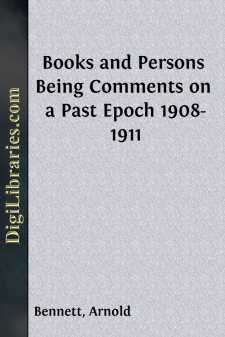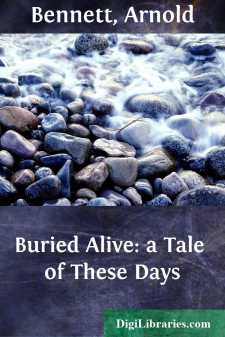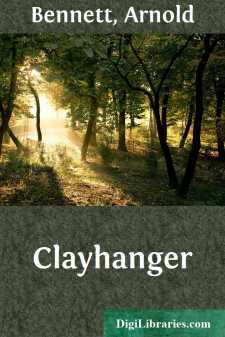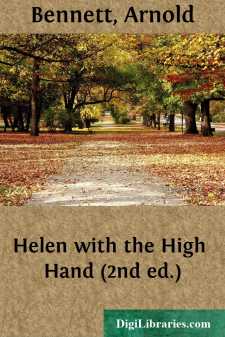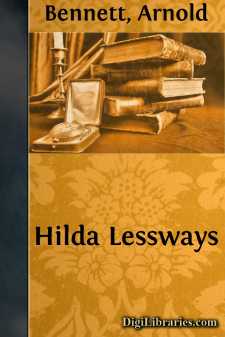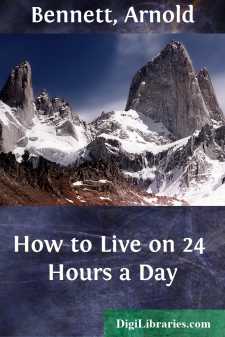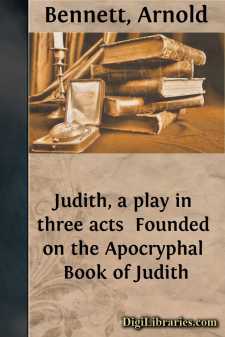Categories
- Antiques & Collectibles 13
- Architecture 36
- Art 48
- Bibles 22
- Biography & Autobiography 813
- Body, Mind & Spirit 142
- Business & Economics 28
- Children's Books 15
- Children's Fiction 12
- Computers 4
- Cooking 94
- Crafts & Hobbies 4
- Drama 346
- Education 46
- Family & Relationships 57
- Fiction 11829
- Games 19
- Gardening 17
- Health & Fitness 34
- History 1377
- House & Home 1
- Humor 147
- Juvenile Fiction 1873
- Juvenile Nonfiction 202
- Language Arts & Disciplines 88
- Law 16
- Literary Collections 686
- Literary Criticism 179
- Mathematics 13
- Medical 41
- Music 40
- Nature 179
- Non-Classifiable 1768
- Performing Arts 7
- Periodicals 1453
- Philosophy 64
- Photography 2
- Poetry 896
- Political Science 203
- Psychology 42
- Reference 154
- Religion 513
- Science 126
- Self-Help 84
- Social Science 81
- Sports & Recreation 34
- Study Aids 3
- Technology & Engineering 59
- Transportation 23
- Travel 463
- True Crime 29
Arnold Bennett
Arnold Bennett was a prolific English writer born on May 27, 1867, in Hanley, Staffordshire. He is best known for his novels set in the Potteries, a region in Staffordshire, such as "The Old Wives' Tale" and "Clayhanger," which provide a vivid depiction of life in the industrial towns of that era. Bennett's works were influential in the early 20th century, earning him a prominent place in English literature, and he was also a notable journalist and playwright.
Author's Books:
Sort by:
by:
Arnold Bennett
HIS BIRTH On an evening in 1866 (exactly eight hundred years after the Battle of Hastings) Mr. Henry Knight, a draper's manager, aged forty, dark, clean-shaven, short, but not stout, sat in his sitting-room on the second-floor over the shop which he managed in Oxford Street, London. He was proud of that sitting-room, which represented the achievement of an ideal, and he had a right to be proud of...
more...
by:
Arnold Bennett
WILFRED WHITTEN'S PROSE 4 Apr. '08 An important book on an important town is to be issued by Messrs. Methuen. The town is London, and the author Mr. Wilfred Whitten, known to journalism as John o' London. Considering that he comes from Newcastle-on-Tyne (or thereabouts), his pseudonym seems to stretch a point. However, Mr. Whitten is now acknowledged as one of the foremost experts in...
more...
by:
Arnold Bennett
CHAPTER I The Puce Dressing-gown The peculiar angle of the earth's axis to the plane of the ecliptic--that angle which is chiefly responsible for our geography and therefore for our history--had caused the phenomenon known in London as summer. The whizzing globe happened to have turned its most civilized face away from the sun, thus producing night in Selwood Terrace, South Kensington. In No. 91...
more...
by:
Arnold Bennett
The Last of a Schoolboy. Edwin Clayhanger stood on the steep-sloping, red-bricked canal bridge, in the valley between Bursley and its suburb Hillport. In that neighbourhood the Knype and Mersey canal formed the western boundary of the industrialism of the Five Towns. To the east rose pitheads, chimneys, and kilns, tier above tier, dim in their own mists. To the west, Hillport Fields, grimed but...
more...
by:
Arnold Bennett
CHAPTER I BEGINNING OF THE IDYLL In the Five Towns human nature is reported to be so hard that you can break stones on it. Yet sometimes it softens, and then we have one of our rare idylls of which we are very proud, while pretending not to be. The soft and delicate South would possibly not esteem highly our idylls, as such. Nevertheless they are our idylls, idyllic for us, and reminding us, by certain...
more...
by:
Arnold Bennett
CHAPTER IAN EVENT IN MR. SKELLORN'S LIFE I The Lessways household, consisting of Hilda and her widowed mother, was temporarily without a servant. Hilda hated domestic work, and because she hated it she often did it passionately and thoroughly. That afternoon, as she emerged from the kitchen, her dark, defiant face was full of grim satisfaction in the fact that she had left a kitchen polished and...
more...
by:
Arnold Bennett
This preface, though placed at the beginning, as a preface must be, should be read at the end of the book. I have received a large amount of correspondence concerning this small work, and many reviews of it—some of them nearly as long as the book itself—have been printed. But scarcely any of the comment has been adverse. Some people have objected to a frivolity of tone; but as the tone is not, in...
more...
by:
Arnold Bennett
THE DOME He wakened from a charming dream, in which the hat had played a conspicuous part. 'I shouldn't mind having that hat,' he murmured. A darkness which no eye could penetrate surrounded him as he lay in bed. Absolute obscurity was essential to the repose of that singular brain, and he had perfected arrangements for supplying the deficiencies of Nature's night. He touched a...
more...
by:
Arnold Bennett
The Secret Significance of Journalism For the majority of people the earth is a dull planet. It is only a Stevenson who can say: "I never remember being bored;" and one may fairly doubt whether even Stevenson uttered truth when he made that extraordinary statement. None of us escapes boredom entirely: some of us, indeed, are bored during the greater part of our lives. The fact is unpalatable,...
more...
by:
Arnold Bennett
ACT I A street in the city of Bethulia in Judea. Bethulia is in the hill country, overlooking the great plain of Jezreel to the south-west. Back, the gates of the city, hiding the view of the plain. Right, Judith's house, with a tent on the roof. Left, houses. The street turns abruptly, back left, along the wall of the city. Left centre, a built-up vantage-point, from which the plain can be seen...
more...



